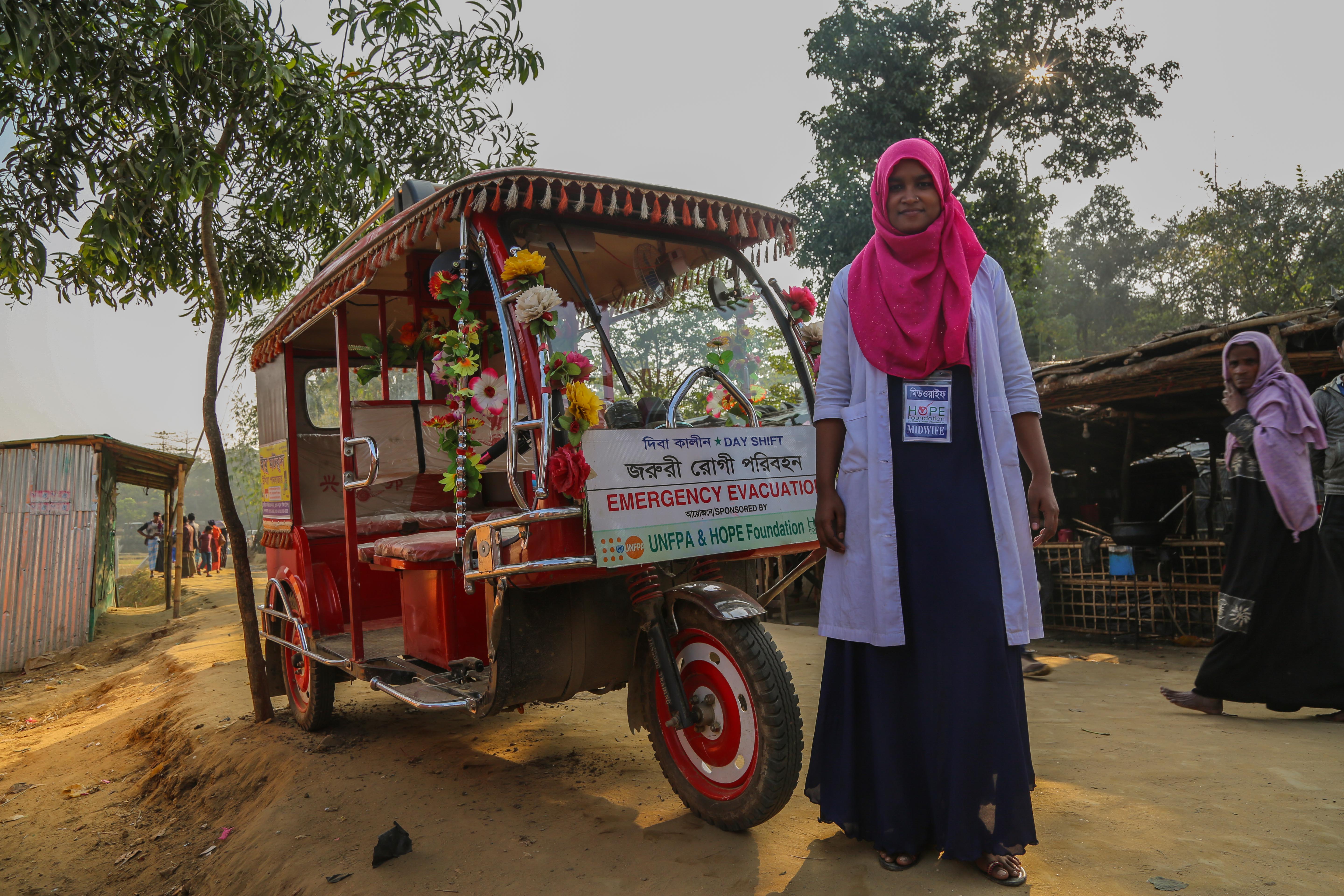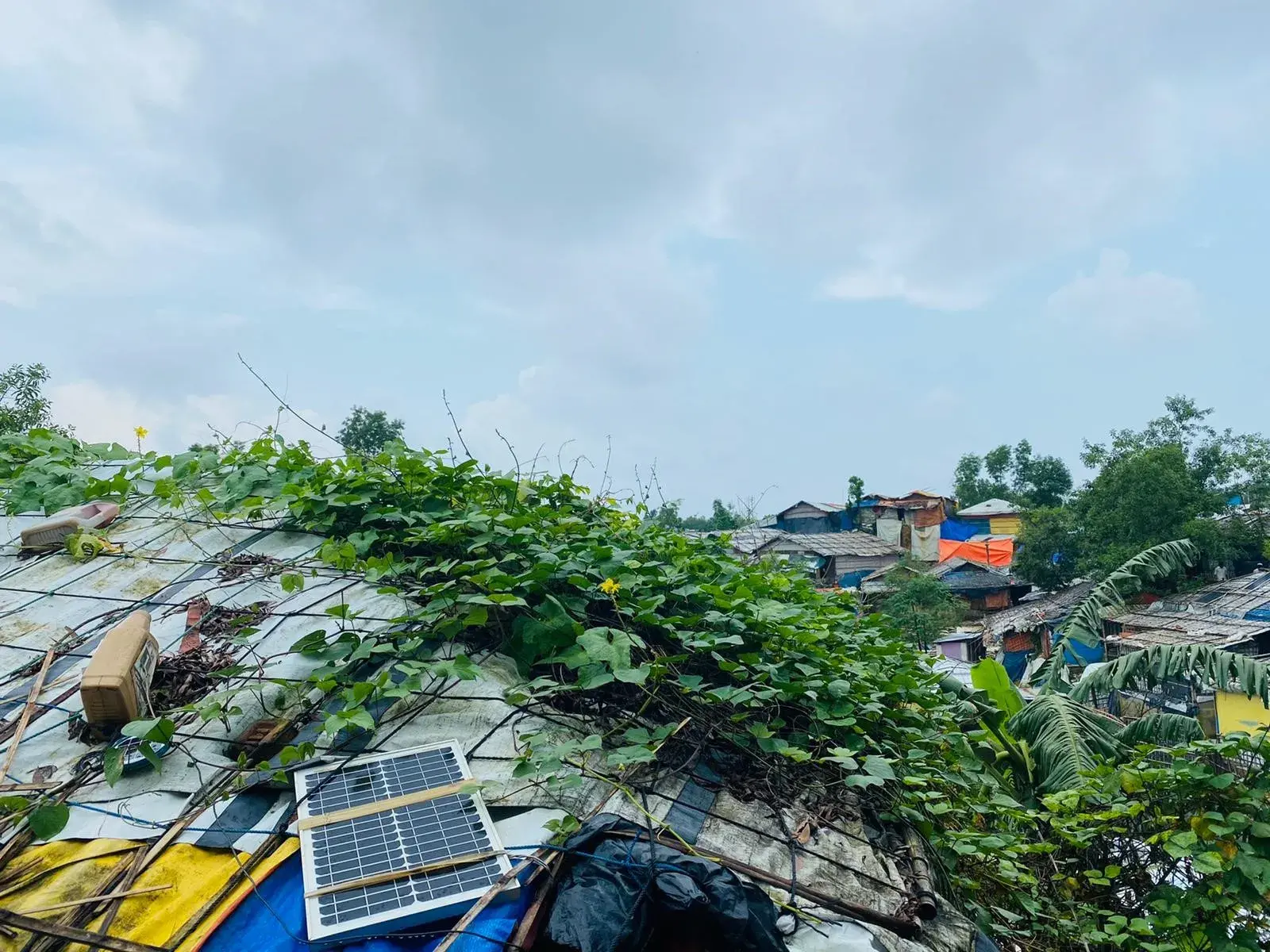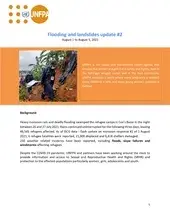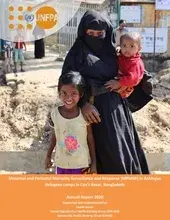A year ago today, just four staff were observing World Humanitarian Day in the UNFPA's Cox's Bazar sub-office. Less than a week later, after horrific violence flared across the border in Myanmar’s Rakhine State, traumatized Rohingya refugees started arriving, and just three weeks later, the number had reached 300,000. Today the number is around 700,000.
This World Humanitarian Day we honour those who have worked tirelessly, planning and implementing our response, securing funding and other resources, overcoming massive logistical challenges and working across the sprawling and ever-growing refugee camps to provide women and girls with the help they so desperately needed.

We also honour the resilience of the Rohingya people who we serve. They have suffered the dehumanising effect of being stateless for generations, the powerlessness of severe restrictions on their lives for almost ten years, and the constant threat of violence, just because of their ethnicity.
We honour the work of the Government of Bangladesh. This country has enough of its own challenges, yet it opened its arms to refugees and has coordinated this enormous response with admirable commitment.
We honour the people of Cox's Bazar, the once small town that is now the fourth biggest city in the country. The impact on those living near the camps has been huge, and their patience and generosity has made Rohingya refugees finally feel like they are welcome somewhere.
We pay tribute to the other UN agencies and NGOs working in Bangladesh. This response has been a true team effort, and every agency has carried out its mandate with transparency, efficiency and dedication.
Every UNFPA staff member - as well as colleagues from our valued Government implementing partners and NGOs such as Mukti, RTMI, GUK and the Hope Foundation - has made a huge contribution.
Over the past year we have distributed 140,000 Dignity Kits with essential hygiene and safety supplies to women and adolescent girls in Bangladesh; in Cox’s Bazar more than 380,000 women and girls have been reached with sexual and reproductive health services; our midwives have helped deliver almost 4,000 newborns; our psychosocial support services are available to all women and girls, and have been accessed by thousands. Our 20 Women Friendly Spaces are refuges where women can talk freely and heal. And we've set up 19 health facilities for women and girls that provide antenatal and postnatal care, family planning and obstetric and gynecological services.
We have taken the lead on tackling gender-based violence in both the camps and the host community. As coordinators of this sector, we work creatively to address gender-based violence with programs that are agile, appropriate and effective.
UNFPA ensures humanitarian preparedness to effectively face any future humanitarian crisis in Bangladesh.
We are determined to continue to protect the rights, safety, health and lives of women both in refugee camps and outside in the generous host communities.
We are honored to support the Government of Bangladesh and grateful to our donors and humanitarian partners for their substantial support and the kind and generous people of Bangladesh.
We're proud of what we've achieved. But, there's more to be done.
This year, we want to reach more women, more girls, and expand our services to help adolescent boys as well. We've got great ideas, a lot of motivation, and we're ready to get on with the job.





